
A 75-year-old grandfather who has been teaching karate for nearly five decades and apprehended two criminals with his martial arts skills, once kicking a robber into submission when in his 60s, has said the sport he loves allows him to stay fit as he ages.
Martin Dobson, a chartered surveyor who lives in Bromley, London, attended his first karate session in 1975, aged 27 and ever since then has been “hooked” on the sport which allows him to act with “precision, effectiveness, and control”.
He has obtained many international qualifications, including for refereeing, examining and instructing, and is now a 4th Dan Sensei – a fourth level black belt teacher.
Martin loves both the mental and physical challenges of karate, and although his motivation was initially fitness, not fighting, his skills have come in handy when faced with danger. They helped him to apprehend a suspect in the 1990s and stop a shop robbery in 2011 by kicking one of the suspected criminals hard enough to stop him in his tracks.
On another occasion in the mid-1980s in London, he managed to scare off a group of three youths who confronted him, likening the scene to “the Dirty Harry script”.
“I told them that they were dicing with death and just stared them out, and they backed off because they realised that I had switched on,” Martin told PA Real Life.
“That’s one of the things you learn to do in karate, you learn to switch on very quickly, and I suddenly became aware of the danger … it all became automatic.
“I just said to them ‘I know what you’re trying to do, you’re not going to do it, and I can guarantee that you won’t be going home today’.”

Martin has travelled around the world with karate, completing nine trips to Japan, and now teaches the martial art twice a week, while still working as a chartered surveyor.
As he gets older, however, he said keeping up his speed is challenging. He does not do “jumping spinning back kicks” any more, and he has to spend more time warming up to prevent injuries.
He continued: “But that’s the good thing about karate, that you go at your own pace, and you adapt to how you can do things.”
He teaches at South London Shotokan Karate Club, which he established in 1988, and has helped many students attain black belt certification by the Japan Karate Association.
Martin said he will continue practising and teaching karate for the foreseeable future as he loves keeping fit, socialising and learning new skills.
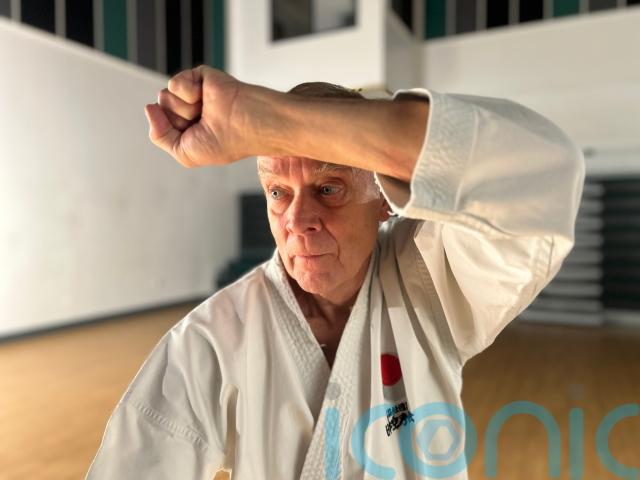
“I found that my fitness started to improve quite rapidly (when I started karate), and I realised that there was so much to learn,” Martin said.
“It was a challenge because, after qualifying as a surveyor … I found that I had a big void in my life that I needed to fill with another challenge, and it just took off from there.
“The more I continued with karate, the more I realised how much there was to learn and how difficult it really was if you want to progress to a high level.”

Martin said he was not a “sporting person” growing up and qualified as a chartered surveyor in 1973, aged 25.
He attended his first karate session in 1975, aged 27, after a colleague told him he was “very unfit” and invited him to do some training at his karate club.
The grandfather-of-four remembers the first session vividly, as he found it challenging and was aching the next day – but that did not deter him from attending further sessions.
“I didn’t have the nerve to say that I was feeling it too much and said ‘Oh, of course, I’ll come back’, so I went back,” Martin explained.
“After a few weeks, I really started to get hooked on it – and that was the start.”
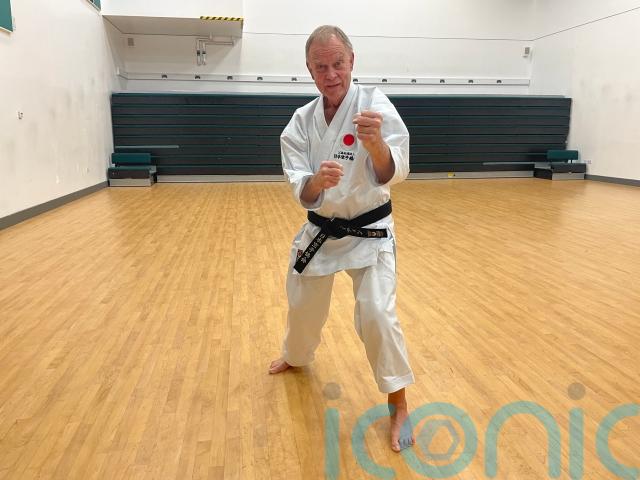
With karate, which translates to “empty hand” in English from Japanese, Martin explained that technique is the most important aspect.
He said the techniques, if performed correctly, can be “devastating” against an opponent – but advises his students that they should not use their skills to attack anyone.
He said: “We teach our students that they shouldn’t be attacking anyone, and it’s only there for their own protection and defence at the last resort.”
While Martin has never used his martial arts skills for physical fights, he has helped police on two occasions – although these events were “completely out of the blue”.
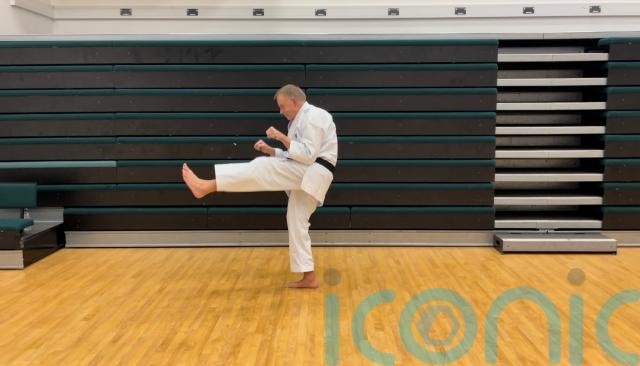
He helped to detain a suspect with an “arm lock” while wearing a suit on his way home from work in the 1990s, and even helped to stop a robbery in progress in 2011.
“I’ve had to help the police to arrest someone on one occasion, and they were really struggling with someone that they had just caught up with,” Martin said.
“They couldn’t hold this guy, so I was asked to intervene by one of the policemen, and I immediately got him under control with an arm lock, which subdued him suddenly.
“It made me realise what I’d been taught really does work, and on another occasion, I had to intervene in a robbery of a shop, and we actually stopped the robbery and they got arrested.”
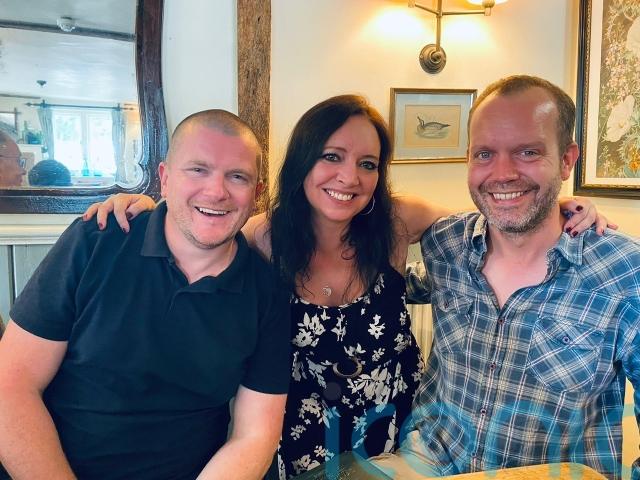
Martin, who achieved his first black belt in 1990, particularly enjoys kata – the practice of performing sequences of specific karate moves targeting a virtual opponent.
He has been teaching the sport for nearly 50 years now, attaining his 4th Dan qualification in 2012, and he has helped many students achieve their black belts and while this can be a “rocky road” for some, he said “trying to get people to understand what they’re doing wrong or what they’re doing right is fulfilling”.
“It’s a real feeling of elation when one of your students gets their black belt because that’s what most of the people are working towards – and it’s not an easy goal,” Martin said.
“It feels really good when one of your students manages to make it, it does give you an uplifting feeling.
“You feel proud, and you pat yourself on the back because you’ve helped them get there.”
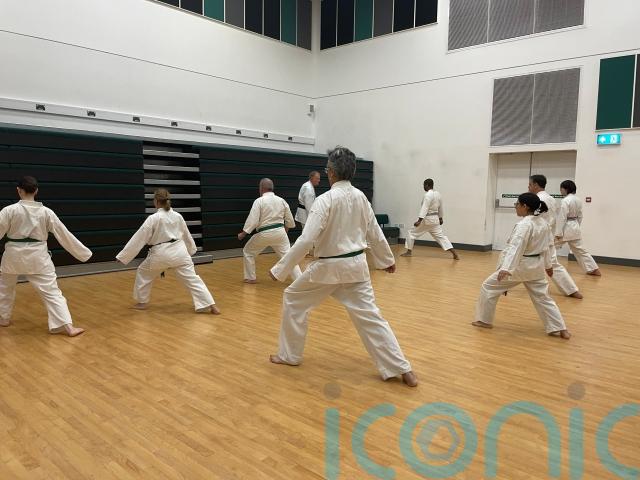
Although karate becomes more challenging as he gets older, Martin loves learning to “adapt”, meeting others, and said living in London allows him to travel and access facilities easily.
This follows new research from Retirement Villages Group (RVG) which reveals almost a third (31%) of over 65s want to move to better-connected areas in future.
Martin, who lives with his wife Deirdre, 73, who works in a children’s nursery, has no plans to stop practising and teaching karate and would encourage anyone to try it.
“Anyone can do it. I’ve even seen people doing it in wheelchairs, they can do the arm movements and it’s still exercise, but it’s a challenge,” Martin said.
“I’ve seen people actually get their black belt from a wheelchair because they can demonstrate the knowledge of what the techniques are.”
For more information about Retirement Villages Group and its research, visit its website here: retirementvillages.co.uk/blog/baby-boomerangs
Subscribe or register today to discover more from DonegalLive.ie
Buy the e-paper of the Donegal Democrat, Donegal People's Press, Donegal Post and Inish Times here for instant access to Donegal's premier news titles.
Keep up with the latest news from Donegal with our daily newsletter featuring the most important stories of the day delivered to your inbox every evening at 5pm.